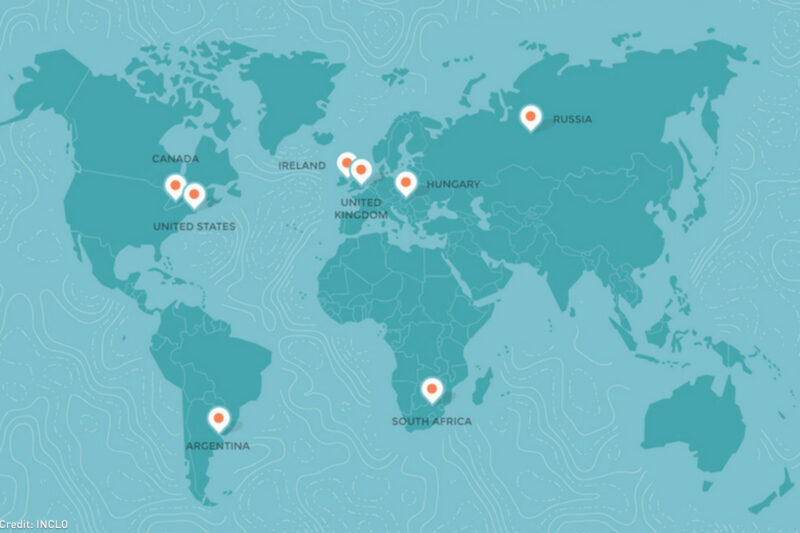The U.S. Intelligence Community Can Share Your Personal Information With Other Governments, and WeÔÇÖre Demanding Answers


While the └¤░─├┼┐¬Ż▒Żß╣űÔÇÖs focus on foreign intelligence surveillance typically centers on the U.S. governmentÔÇÖs National Security Agency, intelligence collection actually operates on a global scale. Our government is just one branch of an international network of intelligence services that coordinate their efforts with virtually no transparency or accountability.
ThatÔÇÖs why the └¤░─├┼┐¬Ż▒Żß╣ű has joined with seven of our partners in the International Network of Civil Liberties Organizations (INCLO) to file freedom of information requests seeking government records concerning how intelligence sharing between countries actually works. Along with a we filed today under the Freedom of Information Act, our seven partners filed similar requests in their own countries, in Argentina, Canada, the United Kingdom, Hungary, Ireland, Russia, and South Africa.
Our concerns with these arrangements are not academic. American intelligence agencies played a role in surveilling Nelson Mandela and the African National Congress in the 1960s. More recently, in exchange for providing the CIA with information about Libyans suspected of ties to international terrorism, the United States Libya to interrogate prisoners at Guant├ínamo Bay. And American intelligence agencies reportedly work closely with their Ethiopian counterparts on counterterrorism in the Horn of Africa, despite the Ethiopian governmentÔÇÖs against political opponents, the press, and detainees.
Since the Snowden revelations, weÔÇÖve learned a lot about the NSAÔÇÖs expansive surveillance tools ÔÇö like Upstream surveillance, which weÔÇÖre challenging as unconstitutional in Wikimedia v. NSA, and , under which the NSA can record, store, and revisit every phone call in a given foreign country. But far less is known about the extent to which the government shares information collected through that surveillance with other countries.
We do know that the government it collects with other countries, through partnerships like its ÔÇťFive EyesÔÇŁ arrangement with the United Kingdom, Australia, Canada, and New Zealand, and through with countries like Germany, Israel, and Saudi Arabia. (Some of these agreements may have been in recent months, after President Trump shared with Russian officials evidence of Israeli intelligence gathering in Syria, and British officials were upset by U.S. leaks concerning the U.K.ÔÇÖs investigation of the Manchester bombing.)
But what do these agreements say? How do they work in practice? And what safeguards are present to ensure that the United States does not sidestep domestic legal constraints by laundering surveillance through other countries ÔÇö for example, by asking a foreign government to conduct surveillance that the U.S. government could not do itself? Or that it does not ÔÇö advertently or otherwise ÔÇö contribute to the use of American intelligence to facilitate human rights violations or other abuses?
We need to scrutinize these practices, especially as we approach what is sure to be a contentious debate surrounding the reauthorization of Section 702 of the Foreign Intelligence Surveillance Act later this year. We know that the products of the governmentÔÇÖs surveillance under Section 702 have been shared with foreign governments ÔÇö for example, when the NSA intercepted the communications of people associated with a Fijian pro-democracy campaign and then shared the messages with the agencyÔÇÖs New Zealand counterpart.
Moreover, the rules approved by the Foreign Intelligence Surveillance Court governing how Section 702ÔÇôcollected data may be used by the NSA explicitly that ÔÇť[i]nformation acquired pursuant to section 702 of the Act may be disseminated to a foreign government,ÔÇŁ with weak protections for individualsÔÇÖ privacy, including that of Americans. (The rules governing how the FBI may share Section 702ÔÇôcollected data are, perhaps unsurprisingly, from the FISC-approved guidelines.)
Coordinated surveillance by some of the most powerful countries in the world demands, in turn, that civil society coordinate its response. WeÔÇÖve joined with our INCLO partners in this effort because we know that in todayÔÇÖs interconnected world, an email we send to a friend abroad could end up not just in our own governmentÔÇÖs hands, but the hands of foreign governments as well. The same goes for our friend.
WeÔÇÖre hoping that this joint project helps shed some light on these practices, both at home and around the world.

